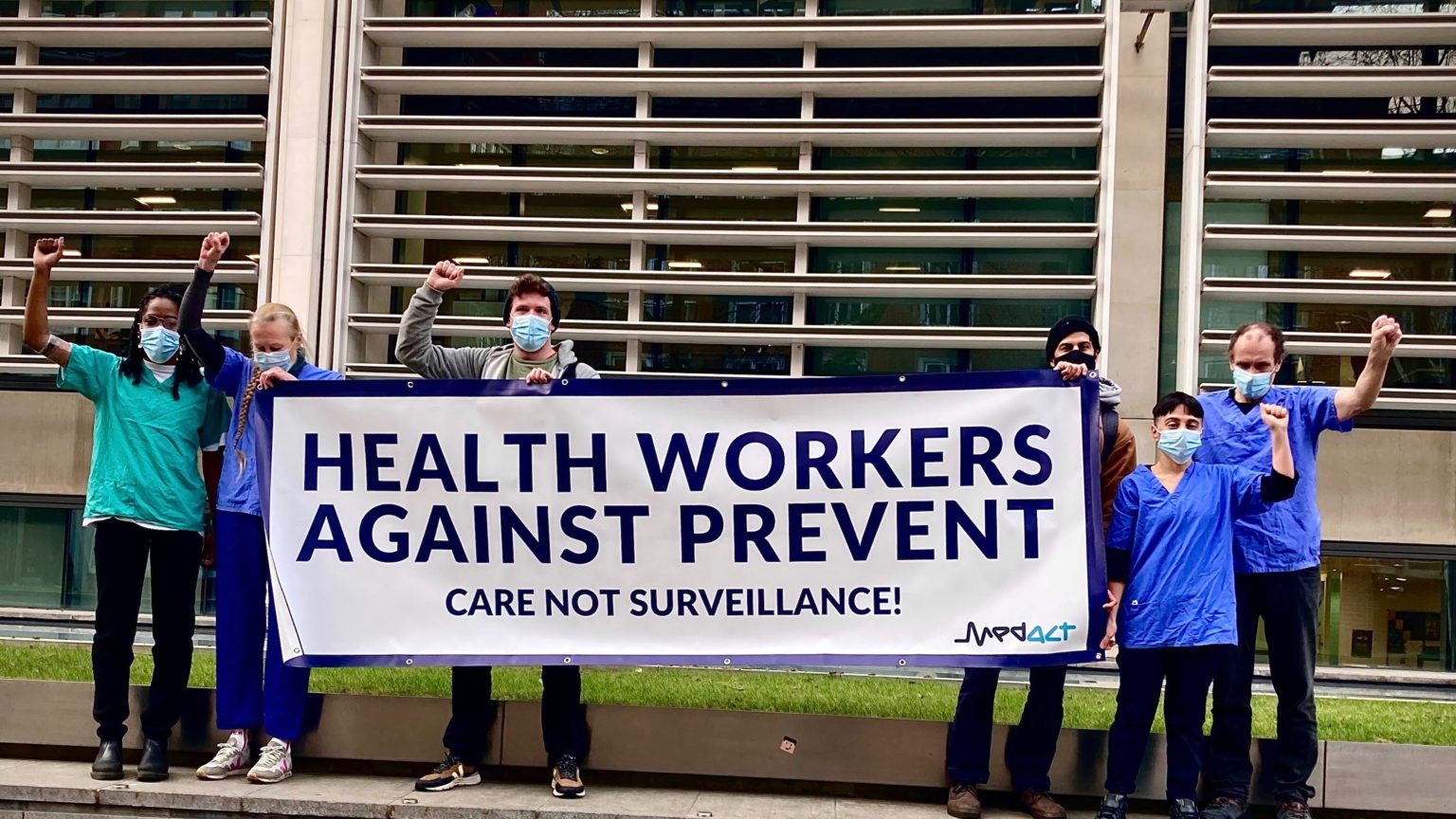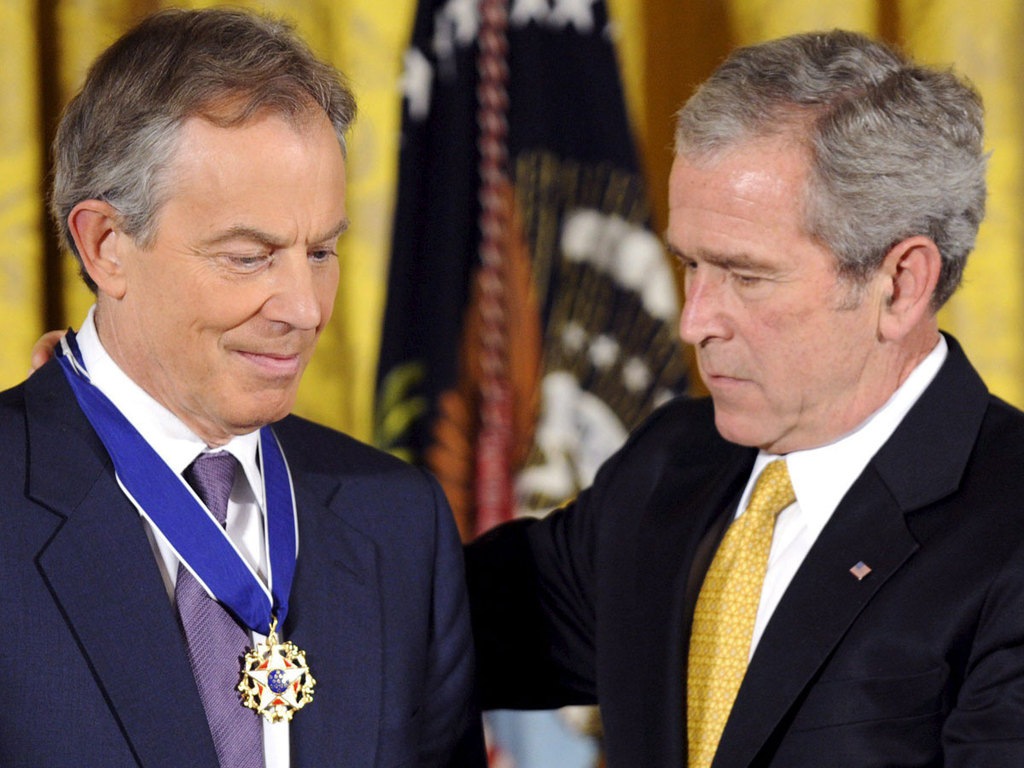Should health workers work with counter terrorism agencies?
Original article by Peoples Health Dispatch republished from peoples dispatch under a Creative Commons Attribution-ShareAlike 4.0 (CC BY-SA) license.

NHS staff pulled into counter-terrorism programs, raising alarms over patient care and professional ethics
Mental health workers in the United Kingdom are being drawn into joint ventures with police and intelligence institutions as part of the national counter-terrorism agenda.
A new report by Medact, an association of health workers advocating for peace and social justice, highlights how the Counter Terrorism Clinical Consultancy Service (CT CCS) integrates National Health Service (NHS) staff with counter-terrorism agents. This service effectively turns health workers into interpreters for the police, who use the information provided to decide on tactics for individuals identified as potential terrorist threats.
Read more: Prevent: Health workers resist UK’s ‘counter terrorism’ strategy that weaponizes public services
In 2024, approximately £17 million was awarded to NHS Trusts to collaborate with security services involved in counter-terrorism. At the report’s launch in London, author Charlotte Heath-Kelly explained that these funds support interdisciplinary teams tasked with analyzing information about selected subjects.
The teams comprise mental health professionals, including nurses, psychiatrists, psychologists, and police officers. Health workers receive basic information on individuals identified as threats, which they then process and explain to their police counterparts. If the decision is made to continue monitoring a person, health workers interpret new information collected and may reach out to the person’s GP practice to encourage them to report on their patients in case they, for example, discontinue therapy or experience a stressful situation.
“This creates an indirect surveillance relationship between health workers and patients and may compromise a patient’s right to discontinue medical treatment since police-led interventions may follow non-compliance,” Heath-Kelly writes.
Unseen patients
CT CCS health professionals contextualize and explain how potential mental health issues could affect an individual’s behavior. This process, referred to as “formulating,” is commonly used in mental health care to better understand a person’s mental health status in the context of their everyday life and offering them support. However, unlike in healthcare settings where formulating is done collaboratively with the patient, CT CCS professionals have no direct contact with the people they are assessing, nor do they have their consent for the process to take place. This puts the teams at odds with professional ethics.
The involvement of health workers means that counter-terrorism teams do not only profile individuals but are guided in using available medical information contextually. Despite these “improvements,” it is likely that those most affected by this new line of intelligence will be racialized. Previous analyses by Medact have shown that Muslims were about 23 times more likely to be referred to a mental health hub for ‘Islamism’ than white British people were for ‘Far Right extremism.’
CT CCS work: legal but controversial
Alarmingly, there is no public accountability or oversight over the implementation of this program. If allowed to continue unchecked, it will persist as a “bubble of trust” between select health professionals and police officers, as described by a high-ranking officer interviewed by Heath-Kelly. This could easily erode the relationship between health workers and their patients and undermine the overall role of the NHS.
The work of CT CCS teams, while controversial, is entirely legal. They operate within regulations such as the GDPR, relying on provisions that allow information sharing when a person is flagged as a risk to themselves or others. However, they apply these rules even at very low levels of perceived risk, including many cases involving young people and children. This potential for misuse in the field of health information and data, which is particularly sensitive, suggests that similar practices could occur in other areas.
There must be a better way to utilize the millions of pounds allocated to the intersection of health and policing services, Heath-Kelly appealed at the launch. Considering the soaring needs in mental health services and the shortage of health workers in the field, the new government might want to divert the budget to address these critical areas instead.
Original article by Peoples Health Dispatch republished from peoples dispatch under a Creative Commons Attribution-ShareAlike 4.0 (CC BY-SA) license.
